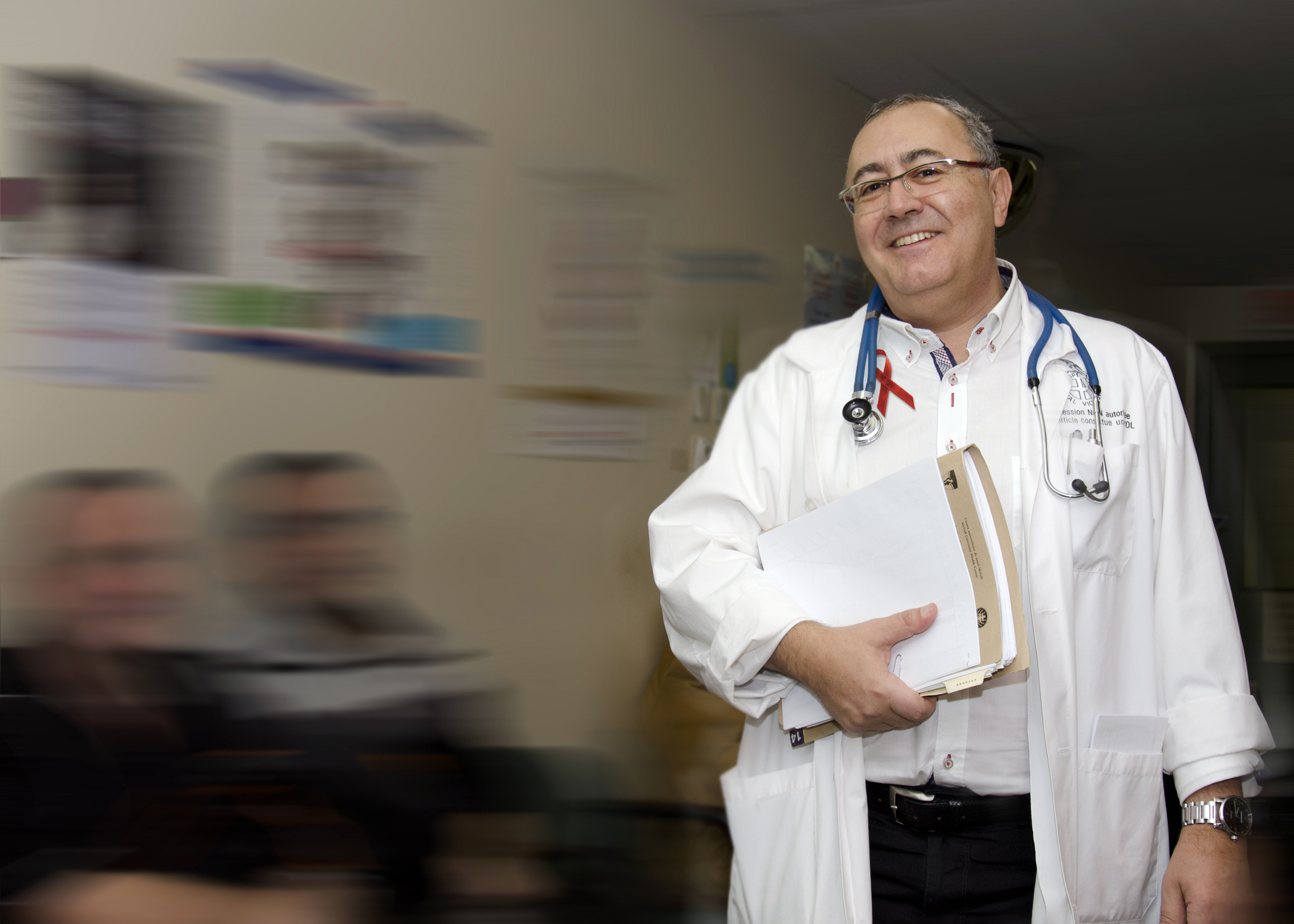World AIDS Day— A conversation with Dr. Jean-Pierre Routy
An update on HIV research and care, nearly two years into the COVID-19 pandemic
On the occasion of World AIDS Day, we spoke with Dr. Jean-Pierre Routy, Clinical Director of the Chronic Viral Illness Service at the MUHC, Senior Scientist in the Infectious Diseases and Immunity in Global Health Program at the Research Institute of the MUHC and Director of the FRQS AIDS and Infectious Diseases Network. Dr. Routy is also the co-chair of the International AIDS Conference 2022, which will be held from July 29 to August 2, 2022, in Montreal.

To mark World AIDS Day, you have organized an event to pay tribute to the pioneers of Quebec’s HIV-AIDS response.
Yes. We want to pay tribute to the doctors and field workers who initiated the fight against AIDS in Quebec 40 years ago, to talk about the progress that was made and commemorate HIV victims. Hosted by Yanick Villedieu, science journalist at Radio-Canada, the evening will include testimonies from some of the pioneers, as well as literary reading selected by author Catherine Mavrikakis, and read by Jean Marchand.
You talk about progress… What is the status of HIV/AIDS research today?
After 40 years of research, there is still no effective HIV vaccine. The challenge is to develop an HIV vaccine that does not create inflammation, and so far, this has not been successful.
In fact, the “superpower” of HIV is that it infects cells when they enter an inflammatory phase to fight an enemy. The cells “cry wolf" and the wolf—in this case HIV—infects them more easily because it knows where they are. This mode of action is unique to HIV, which infects CD4 lymphocytes that are central to the coordination of the immune response. Moreover, we know that the colon has more CD4 cells and therefore more HIV, because the cells are more inflamed.
For this reason, recent scientific developments about the gut microbiome is of particular interest to HIV research. Every day, immune cells in the digestive system must stop microbes while allowing nutrient absorption. Alteration of these immune cells contributes to an inflammatory syndrome related to a greater passage of microbial particles into the blood. This regulatory process could be modified by drugs that act in the digestive tract, as suggested in a recent study that we published in PNAS.
On the other hand, where we have failed with vaccines, we have prevailed with antiretroviral drugs, which are now incredibly powerful. These treatments make it possible to achieve and maintain an undetectable viral load and thus to stop sexual transmission—hence the equation undetectable = untransmissible (u=u). People living with HIV, and who follow treatment, no longer transmit the virus. For people who engage in risky behaviours, taking daily medication protects them from acquiring the virus, but not from other sexually transmitted infections.
In both types of treatment, people must take daily medication, which is sometimes difficult. As a result, what is being developed now is a long-acting injectable drug that could protect an individual for six months. A two-month version is already on the market in Canada; its development was delayed by the COVID-19 pandemic. The 6-month version should have a greater impact.
How has the COVID-19 pandemic affected research and care?
Like other diseases, AIDS has been overshadowed by COVID-19. A lot of research money was invested in COVID-19. In many cases, the same doctors who were working on HIV started working on SARS-Cov-2. So obviously, research has slowed down a bit.
On the care and prevention side, the pandemic has affected the follow-up of some patients. Approximately 10 per cent of patients stopped their treatment or interrupted their medical follow-up, which led, for some, to hospitalizations. Some patients lost their jobs and stopped taking their medication due to a drop in income. There has also been a decrease in the number of tests performed, following temporary closure of testing centres. We do not have precise figures yet, but this has certainly had an impact on health and the transmission of HIV.
What are your hopes for the future?
COVID-19 has had dramatic effects around the world but remains benign in the majority of cases. HIV, on the other hand, affects people for life and remains a major source of stigma.
It is important to re-engage and follow the science—the theme of the upcoming International AIDS Conference 2022, to be held in Montreal next summer. We need to re-engage patients, prevention, vaccine research, and the pharmaceutical industry. All of this must be based on science, and that involves fighting anti-immigrant, anti-LGBTQ2+ rhetoric. When it comes to communicable diseases, we must never let our guard down.

